Physics
Sign up for our newsletter
We summarize the week's scientific breakthroughs every Thursday.
-
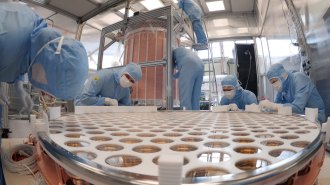 Physics
PhysicsA new dark matter experiment quashed earlier hints of new particles
Unlike its earlier incarnation, the XENONnT detector found no evidence of extra blips that scientists had hoped indicated new physics.
-
 Physics
PhysicsWiggling metal beams offer a new way to test gravity’s strength
A new experiment aims to get a better handle on “Big G,” the poorly measured gravitational constant.
-
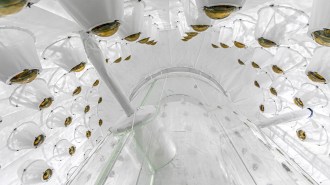 Particle Physics
Particle PhysicsA supersensitive dark matter search found no signs of the substance — yet
The LZ experiment’s first measurement raises hopes that scientists are closer than ever to finding the source of much of the universe’s mass.
-
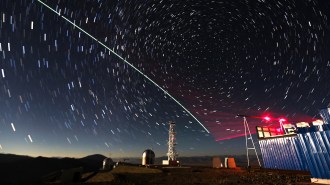 Quantum Physics
Quantum PhysicsAliens could send quantum messages to Earth, calculations suggest
Scientists are developing quantum communications networks on Earth. Aliens, if they exist, could be going further.
-
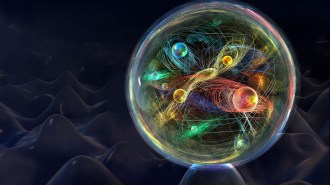 Particle Physics
Particle PhysicsHow physicists are probing the Higgs boson 10 years after its discovery
The famous particle may point to cracks in the standard model and new physics beyond.
-
 Physics
PhysicsPhysicists may have finally spotted elusive clusters of four neutrons
Long-sought clumps of four neutrons called tetraneutrons last less than a billionth of a trillionth of a second, an experiment suggests.
-
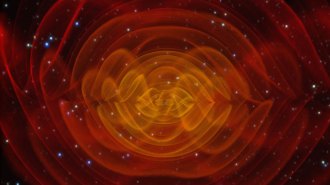 Astronomy
AstronomyGravitational wave ‘radar’ could help map the invisible universe
Gravity ripples scattering off warped spacetime near massive objects might help astronomers peer inside stars and find globs of dark matter.
By Asa Stahl -
 Physics
PhysicsHow fast a row of dominoes topples depends on friction
Computer simulations reveal that two types of friction are important in determining how quickly dominoes collapse.
-
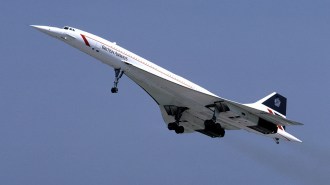 Physics
PhysicsWhy even small sonic booms are more annoying in cities
Quieter sonic booms from next-generation planes could still be annoying in cities thanks to narrow streets and tall buildings, simulations suggest.
-
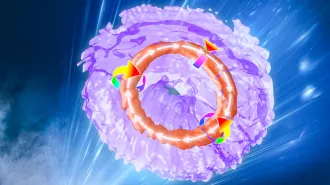 Physics
PhysicsScientists created ‘smoke rings’ of light
A swirling doughnut of light shows that vortex rings aren’t just for fluids anymore.
-
 Quantum Physics
Quantum PhysicsQuantum physics exponentially improves some types of machine learning
It wasn’t entirely clear if quantum computers could improve machine learning in practice, but new experiments and theoretical proofs show that it can.
-
 Particle Physics
Particle PhysicsHow neutrinos could ensure a submarine’s nuclear fuel isn’t weaponized
Nuclear submarines could be monitored with the help of neutrinos to ensure that the fuel isn’t diverted to nuclear weapons programs